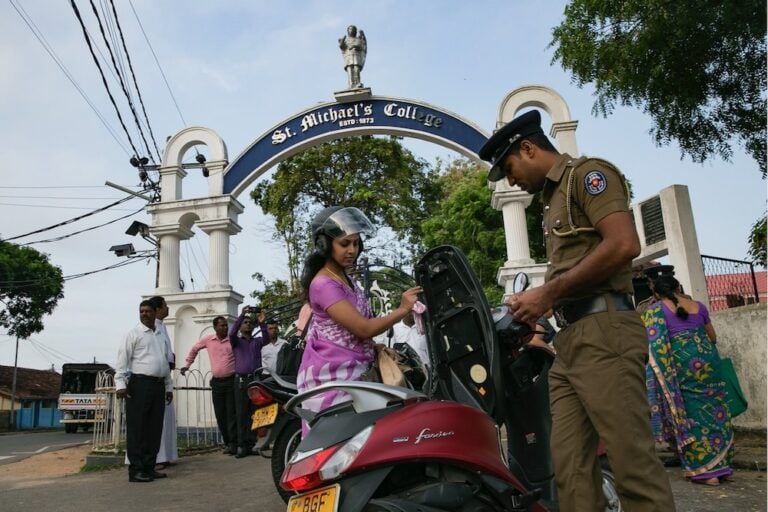(FMM/IFEX) – The following is a 16 March 2005 FMM statement: The Free Media Movement (FMM) has received a letter from Canadian journalist Steve Schmit of Global TV Canada regarding an unacceptable practice of the High Commission of the Republic of Sri Lanka in Ottawa, Canada. Schmit is a producer for Global TV, in Toronto, […]
(FMM/IFEX) – The following is a 16 March 2005 FMM statement:
The Free Media Movement (FMM) has received a letter from Canadian journalist Steve Schmit of Global TV Canada regarding an unacceptable practice of the High Commission of the Republic of Sri Lanka in Ottawa, Canada. Schmit is a producer for Global TV, in Toronto, Canada.
In his letter, Schmit states that he planned to produce a documentary on post-tsunami rebuilding and recovery efforts in Sri Lanka. He was asked by the High Commission to provide a “letter of agreement” as a Sri Lankan visa condition.
He was instructed to include the following stipulations in the letter of agreement:
– All film footage/video footage recorded in Sri Lanka will be submitted for preview and clearance by the National Film Corporation/Sri Lanka Rupavahini Corporation, respectively, prior to the crew leaving Sri Lanka.
– The final edited version of the programme will be submitted to the Embassy/High Commission in Canada a week prior to broadcast and any objections raised by the Sri Lankan Embassy/High Commission will be suitably accommodated and/or a right of reply will be given to the Embassy/High Commission, in the same programme, in the event that they find any matter to be broadcast objectionable and affecting the national interest of Sri Lanka.
“The agreement also requires Global TV to name a company or agency that acts as our sponsor and who are liable if we breach the rules set forth in the agreement,” Schmit explained.
These conditions are clearly against universally-accepted norms and practices of democratic freedom, and violate Article 19 of the Universal Declaration of Human Rights, which guarantees freedom of expression and the right to freely access public information.
Moreover, these conditions adversely affect the transparency and accountability of post-tsunami reconstruction and rehabilitation efforts by precluding scrutiny by the media.
FMM considers it extraordinary and unacceptable that conditions such as these, which did not exist even during most of the period of armed conflict in Sri Lanka, are now being applied to coverage of the post-tsunami recovery.
FMM is appalled by this development and urges the government, and the Foreign Ministry in particular, to enquire into this matter with a view to taking remedial steps as soon as possible.
Sunanda Deshapriya,
Spokesperson,
FMM


